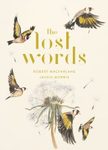![The Old Ways The Old Ways]()
Click to have a closer look
About this book
Customer reviews
Biography
Related titles
About this book
In The Old Ways Robert Macfarlane sets off from his Cambridge home to follow the ancient tracks, holloways, drove – roads and sea paths that form part of a vast network of routes criss-crossing the British landscape and its waters, and connecting them to the continents beyond. The result is an immersive, enthralling exploration of the ghosts and voices that haunt old paths, of the stories our tracks keep and tell, of pilgrimage and ritual, and of songlines and their singers. Above all this is a book about people and place: about walking as a reconnoitre inwards, and the subtle ways in which we are shaped by the landscapes through which we move.
Told in Macfarlane's distinctive and celebrated voice, the book folds together natural history, cartography, geology, archaeology and literature. His tracks take him from the chalk downs of England to the bird-islands of the Scottish northwest, and from the disputed territories of Palestine to the sacred landscapes of Spain and the Himalayas. Along the way he walks stride for stride with a 5000-year-old man near Liverpool, follows the 'deadliest path in Britain', sails an open boat out into the Atlantic at night, and crosses paths with walkers of many kinds – wanderers, wayfarers, pilgrims, guides, shamans, poets, trespassers and devouts. He discovers that paths offer not just means of traversing space, but also of feeling, knowing and thinking. The old ways lead us unexpectedly to the new, and the voyage out is always a voyage inwards.
Customer Reviews
Biography
Robert Macfarlane won the Guardian First Book Award, the Somerset Maugham Award, and the Sunday Times Young Writer of the Year Award for his first book, Mountains of the Mind (2003). His second, The Wild Places (2007), was similarly celebrated, winning three prizes and being shortlisted for six more. Both books were adapted for television by the BBC. He is also the author of Landmarks. He is a Fellow of Emmanuel College, Cambridge.
Nature Writing
By: Robert MacFarlane(Author)
433 pages, b/w illustrations
Customer Reviews:
The Old Ways - connections to our past, present and future'
by Iain Woodfield in the United Kingdom (23-09-2013)
This book could quite easily stand on its own as being an excellent piece of traveler's tale lit. It's full of humour, interesting characters, evocative narrative and as per the minimum requirement of the genre it leaves you with a desire to retrace the author's footsteps. However The Old Ways does more than that. It asks us to consider the myriad of tracks, trails, paths, bridleways and sea roads to be more than just dots and dashes on the map or scores on the ground. The Old Ways are connections, not just the physical connections of place to place or person to person but also connections to our past. They tell us how we did things, who we did them with and why we did them, The Old Ways tell us about our old ways. I couldn't help but think that as heritage this should make our network of tracks and paths hugely important to us. This is not the theme park heritage of deference, national identity and exit via the gift shop, this is universal heritage with utility, heritage that we can, should and do use in the present. I really enjoyed this book and I think all those that enjoy tramping, sailing, working and making the old ways will enjoy The Old Ways too.
Other reviews:
"A wonderful book: Macfarlane has a rare physical intelligence, and his writing affords total immersion in place, elements and the passage of time"
– Antony Gormley
"A naturalist who can unfurl a sentence with the breathless ease of a master angler, a writer whose ideas and reach far transcend the physical region he explores"
– The New York Times Book Review
"[The Old Ways is] a distinguished book that jolted my heart. Adventurous, passionate, intensely romantic [...] fizzes with insights"
– Roger Deakin
"A new naturalist to set beside the classics in our literature"
– Evening Standard
































